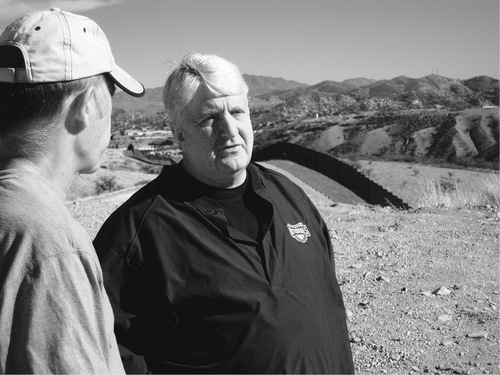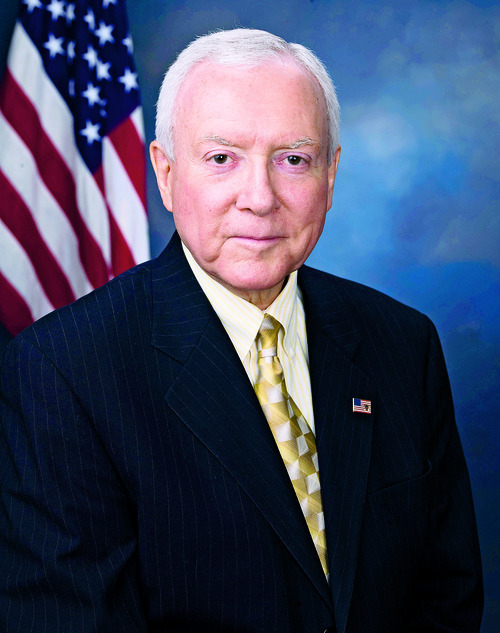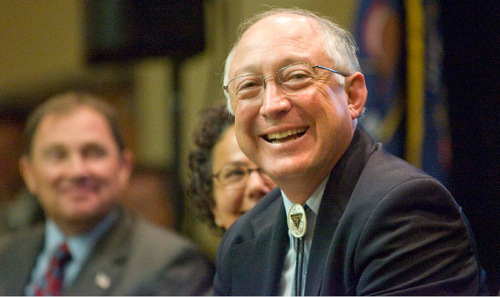This is an archived article that was published on sltrib.com in 2010, and information in the article may be outdated. It is provided only for personal research purposes and may not be reprinted.
Washington • Interior Department Secretary Ken Salazar announced plans Thursday to allow land managers to designate swaths of public land as "wild lands" and protect them, essentially setting aside a 2003 agreement negotiated by then-Utah Gov. Mike Leavitt that had taken away that authority.
Salazar issued an order allowing Bureau of Land Management officials to place public lands with wilderness characteristics in a new category that offers more protection. About 6 million acres in Utah could be affected.
The move earned a quick rebuke by conservative lawmakers, with Sen. Orrin Hatch, R-Utah, calling it a "brazen" move to "kowtow to radical environmental groups."
Gov. Gary Herbert was so angered by Salazar's announcement, he phoned BLM Administrator Bob Abbey to rail against what the governor calls "political posturing."
"This decision may unintentionally damage all of the goodwill that we have worked so hard to build between the state, local governments, the environmental community and federal officials," Herbert said.
Rep. Rob Bishop, R-Utah, who will chair a subcommittee on public lands, said the new policy is simply a present to far-left extremists.
"Make no mistake about it, this decision will seriously hinder domestic energy development and further contributes to the uncertainty and economic distress that continues to prevent the creation of new jobs in a region that has unduly suffered from this administration's radical policies," Bishop said.
Salazar's order essentially jettisons a deal struck by Leavitt with then-Interior Secretary Gale Norton referred to as the "no more wilderness" agreement that took away the ability of BLM officials to designate certain areas as protected.
Salazar said his order returns balance and clarity to land management.
"Americans love the wild places where they hunt, fish, hike and get away from it all, and they expect these lands to be protected wisely on their behalf," Salazar said. "This policy ensures that the lands of the American public are protected for current and future generations to come."
The Leavitt-Norton agreement, aimed at ending a string of litigation over the nation's wilderness policy, was controversial from the start and drew the ire of environmental groups, which said the Bush administration was opening up too much public space to oil and gas drilling.
Uintah County officials, already suing the government over land-use issues, called Salazar's policy an illegal power grab overturning the public process that led to the BLM's management plans. They fear it will restrict gas drilling anywhere that environmentalists say deserves wilderness protection.
"The Obama administration thinks it can just drop an order out of the blue that blows apart all of the energy access and development policies and promises secured in our 2008 BLM Vernal Resource Management Plan," Uintah County Commissioner Michael McKee said in a statement. "They have broken their promises, plain and simple."
Environmental groups lauded the news.
"We were very pleased that the secretary recognized the importance of wilderness to all Americans," said Heidi McIntosh, staff attorney for the Southern Utah Wilderness Alliance (SUWA). "He set a very high standard that BLM will now have to implement."
SUWA had asked the administration to reject the Norton-Leavitt deal and was happy with Salazar's move, but it is waiting to see how the BLM applies it. In the past, McIntosh said, the agency has been too eager to rule out protection of wildlands.
The policy potentially affects nearly 6 million acres in Utah, McIntosh said, because 9 million acres in the state have wilderness qualities and 3.2 million of those were already protected under wilderness study area designations in the 1970s and '80s. Among the 6 million acres without previous protections are 2.6 million identified as wilderness-worthy by the BLM in various land-management plans.
SUWA never believed that the deal struck by Leavitt meant the BLM couldn't protect more land, McIntosh said. "It was an illegal settlement and it was bad policy."
Salazar, too, called the Leavitt-Norton deal "wrong," though he said Thursday's order was still consistent with the deal.
Rodger Schlickeisen, president of Defenders of Wildlife, said Salazar's announcement was Christmas come early.
"After eight years of the Bush administration dropping lumps of coal in our Christmas stockings, Interior Secretary Salazar's announcement is a wonderful present for all Americans," Schlickeisen said. "Now the BLM and Congress will once again be able to take steps to ensure that future generations of Americans can still enjoy these spectacular landscapes."
On the other side, Hatch said the order was an insult to the people of Utah and that Salazar was bowing to "radical environmental elitists."
"When the Grand Staircase-Escalante [National] Monument was created in secret, I called it the 'mother of all land grabs,' " Hatch said. "This move by Secretary Salazar dwarfs that."
Rep. Doc Hastings, R-Wash., the incoming chairman of the House Natural Resources Committee, said Salazar was trying to use a backdoor approach to circumvent Congress' power.
"The administration clearly knows that the law only allows Congress to designate wilderness areas, though somehow they hope giving it a different label of 'wild lands' will pass legal muster," Hastings said. "This new policy will have significant ramifications on our economy, jobs, recreational opportunities and American energy production."
tburr@sltrib.com Brandon Loomis contributed to this story. —
Wildlands policy
What • Interior Department Secretary Ken Salazar announced Thursday a new policy to give federal land managers the ability to designate protected wildlands.
Where • Millions of acres of BLM land, including 6 million in Utah, could be affected.
Why • Salazar says the new policy will protect America's treasured landscapes. Republicans say he was circumventing Congress' authority to placate "radical environmentalists."







